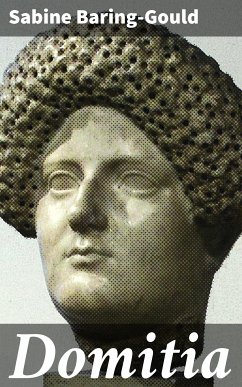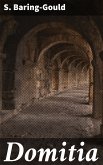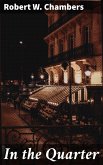In 'Domitia,' Sabine Baring-Gould weaves a rich tapestry of historical fiction that explores the life of Domitia Longina, the wife of Emperor Domitian. Set against the backdrop of the Roman Empire during the first century, the narrative is marked by an intricate style that fuses meticulous historical detail with dramatic character development. Baring-Gould's prose captures the complexities of Roman society, power dynamics, and the personal struggles of a woman navigating her position within this tumultuous framework. The book's exploration of gender roles and political intrigue offers insights into the often-overlooked narratives of women in history, positioning Domitia as a multifaceted character shaped by her environment and choices. Sabine Baring-Gould, an English author and folklorist, possessed a keen interest in history and mythology, factors that deeply influenced his literary creations. His diverse background, which included a degree in theology and a lifelong passion for archaeology and folklore, elucidates the breadth of knowledge evident in 'Domitia.' Baring-Gould collected stories and legends throughout his life, aiming to illuminate the ordinary experiences of exceptional figures. This profound understanding of historical context and human emotion informs his portrayal of Domitia, making her story resonate powerfully with modern readers. 'Domitia' is a must-read for those captivated by historical fiction that deftly intertwines personal drama with larger societal themes. Baring-Gould'Äôs engaging narrative invites readers to immerse themselves in the ancient world of Rome while prompting reflection on timeless issues of womanhood, power, and resilience. This stirring representation of Domitia is not just a journey into history but an exploration of the human spirit, making it an indispensable addition to any literary collection.
Dieser Download kann aus rechtlichen Gründen nur mit Rechnungsadresse in A, B, BG, CY, CZ, D, DK, EW, E, FIN, F, GR, H, IRL, I, LT, L, LR, M, NL, PL, P, R, S, SLO, SK ausgeliefert werden.
Hinweis: Dieser Artikel kann nur an eine deutsche Lieferadresse ausgeliefert werden.









